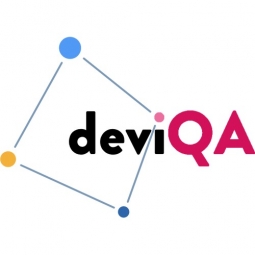.png)
Technology Category
- Application Infrastructure & Middleware - Event-Driven Application
- Robots - Parallel Robots
Applicable Industries
- Cement
- Equipment & Machinery
Applicable Functions
- Product Research & Development
- Quality Assurance
Use Cases
- Experimentation Automation
- Time Sensitive Networking
Services
- Cloud Planning, Design & Implementation Services
- Testing & Certification
The Customer
Solebit
About The Customer
Solebit (MimeCast) is a cybersecurity company that specializes in the identification and prevention of zero-day malware and unknown threats. They provide solutions that protect organizations from advanced threats that bypass traditional security defenses. Their technology is designed to provide real-time protection and threat visibility, enabling organizations to effectively respond to threats and prevent data breaches. However, they were facing challenges with their testing processes, which were inefficient and time-consuming. The tests were manually triggered, took a long time to complete, and the results were difficult to interpret. The architecture of their test suite was also unscalable, making it difficult to maintain a large number of test machines.
The Challenge
Solebit (MimeCast), a company that provides identification and prevention of zero-day malware and unknown threats, was facing significant challenges with their testing processes. The existing automation tests, designed and developed by the in-house team, were not efficient. The tests were manually triggered by developers in a terminal, resulting in a large and complex file of results. The tests took over 20 hours to complete, and there was no history of the test runs available. The architecture of the test suite was unscalable, making it difficult to maintain a large number of test machines. The challenge was to create a simple runner for tests, increase their speed, redesign the architecture to support cloud platform integration, make the tests run more easily, and generate a clean report with all the necessary details. Additionally, improvements were needed for the current testing process, and some manual testing was also required.
The Solution
DeviQA created complex and detailed automated scenarios for testing REST APIs using the Faraday library. A software development kit application was built that worked on various machines, including Azure, Google Cloud, Docker, and both privileged and unprivileged LXC containers. Complex methods for these integrations were created using SSH and SFTP connections, and more than 25,000 tests were designed and developed. Each test ran 500,000 files which were then uploaded. The build time was reduced by a factor of 10, and a system was configured to run tests in a simple way without the involvement of a tech person. A reporting system was created that allowed the team to view clean reports even if the results contained 10k rows. File processing selection was configured on the number machines (Azure Cloud, Google Cloud). Autotests for uploading files were run in parallel on 30 different machines, with 10 threads on each machine. UI testing of the application was also conducted, and comprehensive test documentation was prepared. These test cases covered 80% of the application, and test suites were created for each release for different customers.
Operational Impact
Quantitative Benefit

Case Study missing?
Start adding your own!
Register with your work email and create a new case study profile for your business.
Related Case Studies.

Case Study
Smart Water Filtration Systems
Before working with Ayla Networks, Ozner was already using cloud connectivity to identify and solve water-filtration system malfunctions as well as to monitor filter cartridges for replacements.But, in June 2015, Ozner executives talked with Ayla about how the company might further improve its water systems with IoT technology. They liked what they heard from Ayla, but the executives needed to be sure that Ayla’s Agile IoT Platform provided the security and reliability Ozner required.

Case Study
IoT enabled Fleet Management with MindSphere
In view of growing competition, Gämmerler had a strong need to remain competitive via process optimization, reliability and gentle handling of printed products, even at highest press speeds. In addition, a digitalization initiative also included developing a key differentiation via data-driven services offers.

Case Study
Predictive Maintenance for Industrial Chillers
For global leaders in the industrial chiller manufacturing, reliability of the entire production process is of the utmost importance. Chillers are refrigeration systems that produce ice water to provide cooling for a process or industrial application. One of those leaders sought a way to respond to asset performance issues, even before they occur. The intelligence to guarantee maximum reliability of cooling devices is embedded (pre-alarming). A pre-alarming phase means that the cooling device still works, but symptoms may appear, telling manufacturers that a failure is likely to occur in the near future. Chillers who are not internet connected at that moment, provide little insight in this pre-alarming phase.

Case Study
Premium Appliance Producer Innovates with Internet of Everything
Sub-Zero faced the largest product launch in the company’s history:It wanted to launch 60 new products as scheduled while simultaneously opening a new “greenfield” production facility, yet still adhering to stringent quality requirements and manage issues from new supply-chain partners. A the same time, it wanted to increase staff productivity time and collaboration while reducing travel and costs.

Case Study
System 800xA at Indian Cement Plants
Chettinad Cement recognized that further efficiencies could be achieved in its cement manufacturing process. It looked to investing in comprehensive operational and control technologies to manage and derive productivity and energy efficiency gains from the assets on Line 2, their second plant in India.

Case Study
Integration of PLC with IoT for Bosch Rexroth
The application arises from the need to monitor and anticipate the problems of one or more machines managed by a PLC. These problems, often resulting from the accumulation over time of small discrepancies, require, when they occur, ex post technical operations maintenance.



